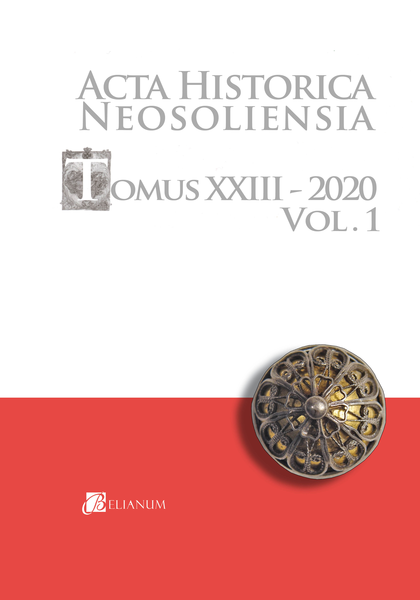Soviet deportations of OUN family members from Western Ukraine in 1940–1952
ANDRIY KOHUT
Sectoral State Archive of the Security Service of Ukraine, Kiev, Ukraine
Abstract: The analysis of new archival records from the “KGB archives” in Ukraine, made it possible to further study the deportation policy of the USSR in occupied Western Ukraine in 1940–1952. Along with campaigns and operations, there is a need to single out such a method of persecution by the Soviet special services as day-to-day deportations. It can be verified that there were three such deportation campaigns carried out in Western Ukraine. The first and third campaigns were carried out to clear the territory from “hostile elements” of the Polish population and the local elites of the Second Polish Republic, as well as the class enemies of the communist regime – the kulaks (well-to-do farmers). The second campaign was launched in response to the activity of the OUN resistance. During 1941 and 1944–1952, two deportation operations were carried out (22 May 1941, and Operation “Zapad” (“West”), 21–23 October 1947), and two campaigns of deportation in the format of the day-to-day activity of the Soviet special services (1944–1946 and 1948–1952). During the deportation campaign against the OUN family members, 66,448 families (or 205,938 persons) were exiled from Western Ukraine. The main purpose of the forced expulsion was the complete elimination of the Ukrainian anti-Soviet insurgency.
Keywords: Soviet deportations, Western Ukraine, soviet secret services, NKVD, MGB, KGB archives, operation “Zapad” (“West”), Organization of Ukrainian Nationalist, Ukrainian Insurgent Army, OUN families.
Archív
Úplné textové verzie vo formáte PDF
- Acta historica Neosoliensia - Tomus 26, num. 1
- Acta historica Neosoliensia - Tomus 25, num. 2
- Acta historica Neosoliensia - Tomus 25, num. 1
- Acta historica Neosoliensia - Tomus 24, num. 2
- Acta historica Neosoliensia - Tomus 24, num. 1
- Acta historica Neosoliensia - Tomus 23, num. 2
- Acta historica Neosoliensia - Tomus 23, num. 1
- Acta historica Neosoliensia - Tomus 22, num. 2
- Acta historica Neosoliensia - Tomus 22, num. 1
- Acta historica Neosoliensia - Tomus 21, num. 2
- Acta historica Neosoliensia - Tomus 21, num. 1
- Acta historica Neosoliensia - Tomus 20, num. 2
- Acta historica Neosoliensia - Tomus 20, num. 1
- Acta historica Neosoliensia - Tomus 19, num. 2
- Acta historica Neosoliensia - Tomus 19, num. 1
- Acta historica Neosoliensia - Tomus 18
- Acta historica Neosoliensia - Tomus 17
- Acta historica Neosoliensia - Tomus 16
- Acta historica Neosoliensia - Tomus 15
- Acta historica Neosoliensia - Tomus 14
- Acta historica Neosoliensia - Tomus 13
- Acta historica Neosoliensia - Tomus 12
- Acta historica Neosoliensia - Tomus 11
- Acta historica Neosoliensia - Tomus 10
- Acta historica Neosoliensia - Tomus 09
- Acta historica Neosoliensia - Tomus 08
- Acta historica Neosoliensia - Tomus 07
- Acta historica Neosoliensia - Tomus 06
- Acta historica Neosoliensia - Tomus 05
- Acta historica Neosoliensia - Tomus 04
- Acta historica Neosoliensia - Tomus 03
- Acta historica Neosoliensia - Tomus 02
- Acta historica Neosoliensia - Tomus 01

